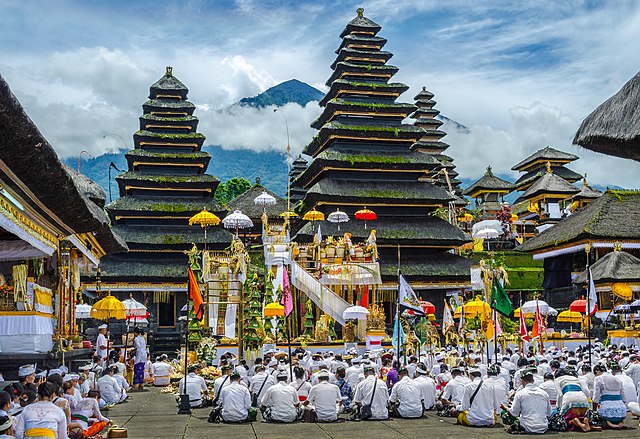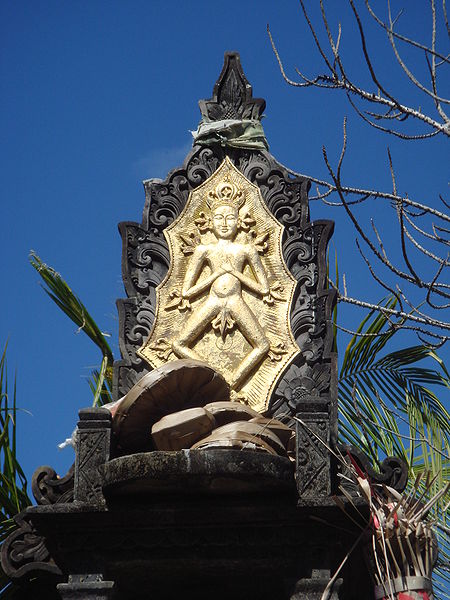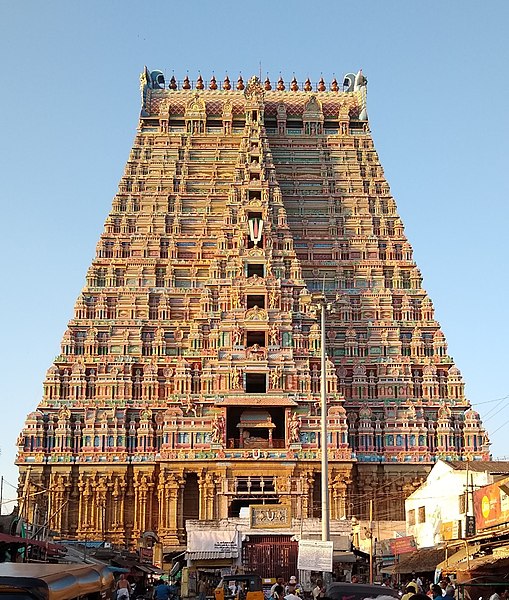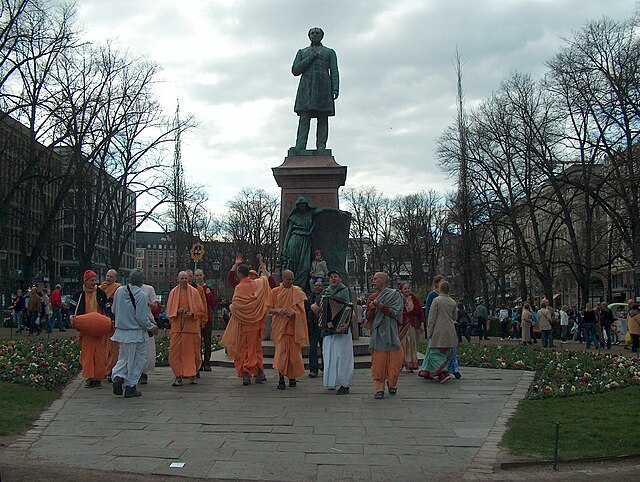Hinduism is the third-largest religion in Indonesia, based on civil registration data in 2022 from Ministry of Home Affairs, is practised by about 1.69% of the total population, and almost 87% of the population in Bali. Hinduism was the dominant religion in the country before the arrival of Islam and is one of the six official religions of Indonesia today. Hinduism came to Indonesia in the 1st-century through Indian traders, sailors, scholars and priests. A syncretic fusion of pre-existing Javanese folk religion, culture and Hindu ideas, that from the 6th-century also synthesized Buddhist ideas as well, evolved as the Indonesian version of Hinduism. These ideas continued to develop during the Srivijaya and Majapahit empires. About 1400 CE, these kingdoms were introduced to Islam from coast-based Muslim traders, and thereafter Hinduism, which was previously the dominant religion in the region, mostly vanished from many of the islands of Indonesia.

A puja ceremony at Besakih Temple in Bali, Indonesia.
Devotees climbing the trail towards Mount Bromo during Yadnya Kasada.
Acintya is the Supreme God in Balinese Hinduism.
Sculpture of "Batara Guru", an aspect of Shiva in Indonesian Hinduism.
Hinduism is an Indian religion or dharma, a religious and universal order by which its followers abide. The word Hindu is an exonym, and while Hinduism has been called the oldest religion in the world, it has also been described as sanātana dharma, a modern usage, based on the belief that its origins lie beyond human history, as revealed in the Hindu texts. Another endonym for Hinduism is Vaidika dharma.
Srirangam Ranganathaswamy Temple dedicated to the Hindu deity Vishnu is said to be worshiped by Ikshvaku and the descendants of (Ikshvaku Vamsam).
Hindus in Ghana celebrating Ganesh Chaturti
Swami Vivekananda was a key figure in introducing Vedanta and Yoga in Europe and the United States, raising interfaith awareness and making Hinduism a world religion.
The Hare Krishna group at the Esplanadi Park in Helsinki, Finland








